The process of peer review is widely recognised as the key element of quality control in academic publishing and the scientific community more generally. Peer review is the critical appraisal of one’s work by fellow scholars, who read and comment on your manuscript and offered a verdict on its quality, rigour, originality, style, completeness, etc. etc. 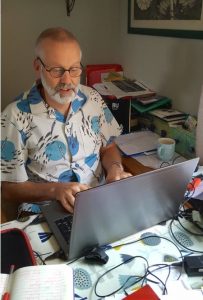
Peer reviewers are typically experts in your field, if not your topic, or who have expertise in the methods you applied or the population or are you studied. They are also academics often with busy day jobs, who act as unpaid peer reviewers, and as journal editors for that matter. Peer reviewers are with full-time jobs who give up their free time to review for academic journals. A recent article by Aczel and colleagues (2021) reported that reviewers across the globe spent over 100 million hours on peer reviewing for free in 2020, the estimated value of this equated to nearly £300 million in the UK alone. This quantifies in some of my feelings I wrote about a decade ago now in a BU Research Blog with the title ‘Peer review and bust academics’.
However, with the ever-growing number of health and social science journals the requests for reviewing seem to grow relentlessly. This month alone (November 2021) I received twenty or 21 requests to review. I have reviewed three manuscripts for Birth, Nepal Journal of Epidemiology, and The Journal of International Development, but I had to reject or ignore many more (see Table 1). I usually do my reviews over the weekend. One weekend this month I could not review because I had to prepare materials for the external auditor who came to visit Bournemouth University for a project recently completed, and this weekend I could not find the time because I’m proof-reading two PhD chapters (and writing this blog).
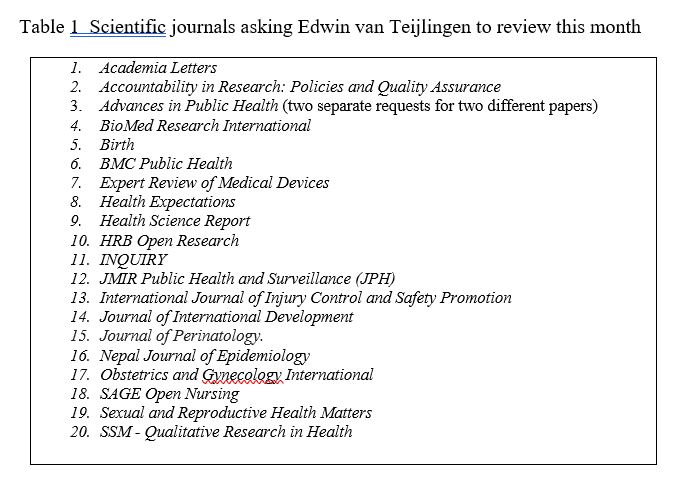
I leave you with some food for thought: academics spent time applying for research funding, then apply for the ethical approval, do the research, we write up the findings, and write blogs about the process!
Prof. Edwin van Teijlingen
Centre for Midwifery, Maternal & Perinatal Health (CMMPH)
Reference:
Aczel, B., Szaszi, B., Holcombe, A.O. (2021) A billion-dollar donation: estimating the cost of researchers’ time spent on peer review. Res Integr Peer Rev 6, 14. https://doi.org/10.1186/s41073-021-00118-2.
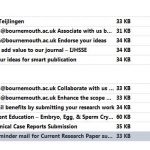 Academia is becoming more demanding
Academia is becoming more demanding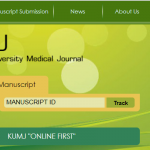 Three-and-a-half years to get published
Three-and-a-half years to get published An epidemic of invitations
An epidemic of invitations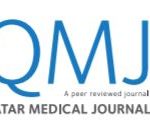 COVID-19 in Qatar
COVID-19 in Qatar










 Conversation article: Why so many people drown at the water’s edge
Conversation article: Why so many people drown at the water’s edge Workshop on longitudinal studies in three countries
Workshop on longitudinal studies in three countries New Bournemouth University public health paper
New Bournemouth University public health paper New ACORN-funded paper published. When time is short but passion for food is strong, food day-tripping may be the answer!
New ACORN-funded paper published. When time is short but passion for food is strong, food day-tripping may be the answer! Royal Society of Chemistry Outreach Fund: Open for Applications
Royal Society of Chemistry Outreach Fund: Open for Applications Last reminder – MSCA Postdoctoral Fellowships 2024 internal deadline next week
Last reminder – MSCA Postdoctoral Fellowships 2024 internal deadline next week Horizon Europe – EuroHPC and MSCA PF webinars
Horizon Europe – EuroHPC and MSCA PF webinars